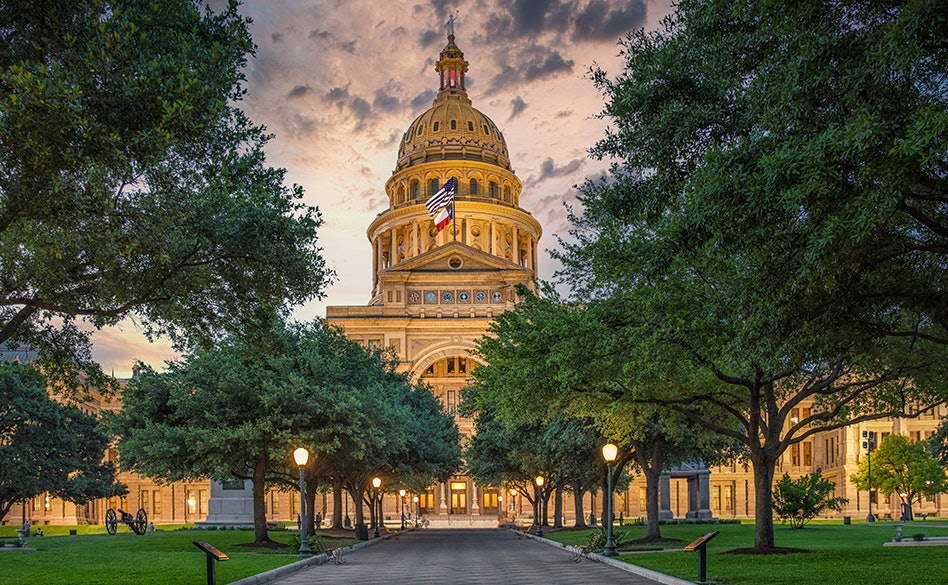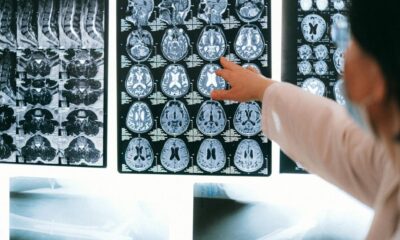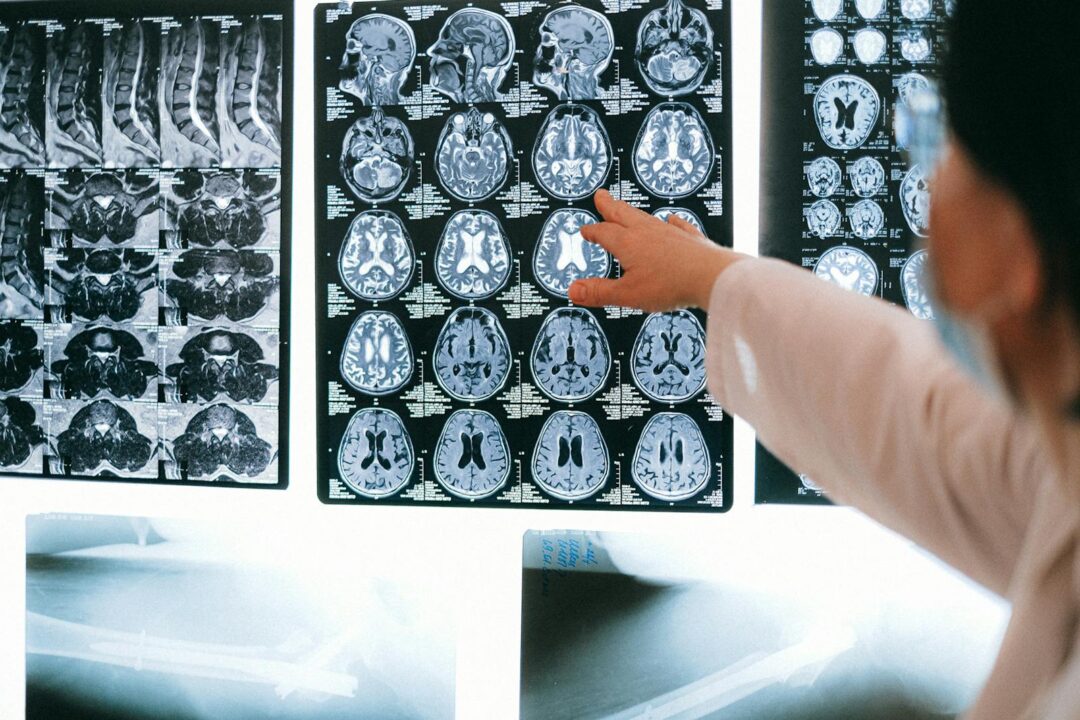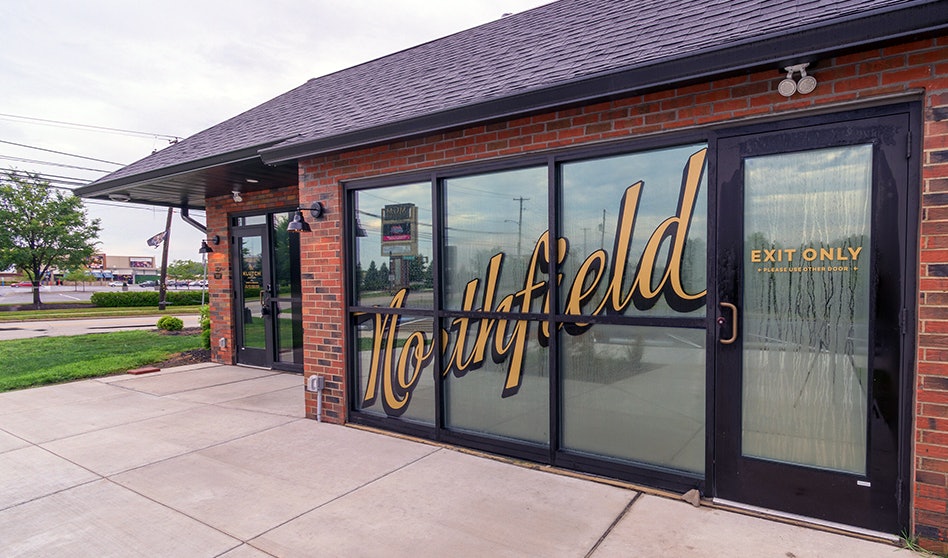featured
Texas, California Governors Collide Over Redistricting; Hemp Lies in the Crosshairs
Published
5 hours agoon

Gov. Greg Abbott filed a proclamation at 10:21 a.m. Aug. 15 to call the Texas Legislature back into a second special session beginning at noon Aug. 15 to consider 19 agenda items, including regulating hemp products.
Despite Lt. Gov. Dan Patrick and Republican state lawmakers being fixated on banning consumable hemp products containing trace amounts of THC and other intoxicating cannabinoids, the governor is once again asking that they “establish commonsense THC regulations.”
These commonsense regulations would include making it a crime to provide hemp-derived products to those under 21 years old, restricting synthetically modified compounds like delta-8 THC, limiting product potency to either 0.3% THC or 3 milligrams of THC, and establishing enforcement mechanisms, “all without banning lawful hemp-derived products.”
Abbott made the same call for regulation in the first special session after he vetoed prohibition legislation in the regular session that Patrick, as the presiding officer in the Senate, championed.
Despite the Texas Constitution barring state lawmakers from taking up legislative subjects in a special session that deviate from a governor’s call, Patrick and Texas Senate Republicans filed and passed Senate Bill 5 to ban the manufacture and sale of products containing hemp-derived THC and other intoxicating cannabinoids. Sponsored by Sen. Charles Perry, R-Lubbock, S.B. 5 mirrored the same legislation that Abbott vetoed in the regular session.
Whether the move to ban hemp THC products in the special session is unconstitutional, possibly deviating from Abbott’s call to regulate the products, could be a matter of judicial review down the road.
However, the Texas House was unable to reach a quorum—meaning it didn’t have two-thirds of members present to conduct business—to vote on S.B. 5 in the first special session because 57 House Democrats packed their bags and left town to block the 150-member chamber from voting on a congressional redistricting plan devised by Abbott. The redistricting ploy could add five Republican seats to the U.S. House to protect the Republicans’ slim majority in Washington come the 2026 midterm election.
While the House Democrats’ quorum-busting walkout was primarily to protest redistricting, their absence in turn prevented any legislative business from crossing the finish line in the first 30-day special session, including the hemp ban, despite the Senate covering the entirety of the governor’s call from within their chamber.
In turn, Abbott threatened earlier this week that he’d “continue to call special session after special session until we get this Texas-first agenda passed,” should the House Democrats not return to legislative duty. He made good on that promise Aug. 15.
“Delinquent House Democrats ran away from their responsibility to pass crucial legislation to benefit the lives of Texans,” Abbott said in announcing his call for a second special session.
“Because of their dereliction of duty, Texas families and communities impacted by the catastrophic Fourth of July flooding have been delayed critical resources for relief and recovery,” he said. “Numerous other bills to cut property taxes, support human trafficking survivors, eliminate the STAAR test, establish commonsense THC regulations, and many others have all been brought to a halt because Democrats refuse to show up for work. We will not back down from this fight. That’s why I am calling them back today to finish the job. I will continue to use all necessary tools to ensure Texas delivers results for Texans.”
In addition to the special session call, Abbott ordered the Texas Department of Public Safety to arrest the “delinquent” House Democrats who “abandoned” their duty.
As it relates to the July 4 flooding in Central Texas that resulted in more than 130 fatalities, Texas House Democratic Caucus Chair Gene Wu has a different take. Wu led the walkout earlier this month to block the governor’s redistricting plan, calling it a political scheme and claiming Abbott submitted to President Donald Trump by incorporating a “racist gerrymander map” into Texas politics.
During an Aug. 3 press conference hosted by Illinois Democratic Gov. JB Pritzker in Chicago, Wu pointed out that Texas GOP lawmakers failed to make natural disaster preparation and flood relief a priority during the first two weeks of the first special session and instead focused on the redistricting plan.
“They don’t even have a bill filed to deal with what they promised the deal with,” Wu said of the absence of disaster preparedness legislation. “Instead, they have spent their entire time playing dirty political games that only help themselves.”
Amid Abbott’s calls for arrests and continued special sessions, the Texas fiasco has further sparked a divide in the national political scene.
In particular, former President Barack Obama came out in support of the Texas House Democrats’ quorum-busting tactics on Aug. 14.
“We can’t let a systematic assault on democracy just happen and stand by,” he said in a video posted on social media. “This precious democracy that we’ve got is not a given; it’s not self-executing. It requires us to fight for it. It requires us to stand up for it.”
As a result of the mid-decade gerrymandering attempt in Texas, California Democratic Gov. Gavin Newsom is now joining the fight to balance the scales.
Newsom accused Abbott in an Aug. 14 video on social media of rolling over to Trump’s demands for redistricting.
“Trump’s election rigging comes to an end now,” Newsom said. “California won’t stand by and watch Trump burn it all down—we are calling a special election to redraw our congressional maps and defend fair representation.”
The difference in California, Newsom said, is that he plans to pick up five congressional seats for Democrats in Washington through the “consent of the people” this November, versus ramming through legislation in a special session.
Newsom called it a “five-alarm fire” for Democracy.

Author: mscannabiz.com
MScannaBIZ for all you Mississippi Cannabis News and Information.
You may like
-


MNPD seizes pounds of marijuana, arrests man with 7 outstanding warrants
-


Can Cannabis Help Make The Brain Younger
-


Klutch Cannabis Opening 5th Ohio Dispensary in Northfield
-


Undercover video exposes illegal THC sales at North Texas vape shops
-


Book Review: The Traveling Cannabis Writer’s Guide to America’s Hidden Gems
-


WKRN: marijuana reclassification impact

The age old search for youth may have a new direction – marijuana
The fight to stay young and healthy has been going on for hundreds if not thousands of years. Billions have been spent, but now there is a new twist – can cannabis help make the brain younger. In the age of biohacking and wellness trends, millennials juggling Zoom fatigue and daily stress are asking: can cannabis do more than chill us out—might it actually make our brains feel younger?
RELATED: Marijuana Might Be A Better Hurricane Party Guest
Preclinical research has shown striking results: in older mice, low-dose THC boosted synaptic connectivity and improved memory, seemingly reversing age-linked cognitive decline.
On the human front, a controlled trial at Johns Hopkins and Tufts used dronabinol—a synthetic THC—in 75 Alzheimer’s patients experiencing agitation. Over three weeks, a twice-daily 5 mg dose reduced agitation by about 30% and was better tolerated than traditional antipsychotics.

However, when it comes to cognitive effects in healthy or aging adults, the data is more mixed. A JAMA Network Open study tracked 57 new medical cannabis users for a year using fMRI scans. The result? No meaningful changes in working memory, reward processing, or inhibitory control—good news for safety-minded users.
But another large-scale imaging study found among young adults (ages 22–36), heavy cannabis users showed reduced brain activation during working memory tasks—63% in lifetime users and 68% in recent users.
Long-term studies add nuance: a Danish cohort study followed over 5,000 men from young adulthood to their 60s and found no greater cognitive decline among cannabis users—in fact, users showed slightly less IQ decline than non-users
RELATED: Science Says Medical Marijuana Improves Quality Of Life
What Does It All Mean for the average person?
-
Dronabinol may soothe brain agitation in Alzheimer’s patients—a meaningful bump in quality of life for patients and caregivers Johns Hopkins Medicine.
-
Medical cannabis over a year doesn’t appear to disrupt key cognitive functions in healthy adults, based on fMRI measures.
-
Heavy recreational use, especially among the younger crowd, may impair working memory and brain activity in imaging studies
-
Long-term cognitive aging trends may not suffer—and could potentially fare better—in users, according to a large Danish study.
While animal studies highlight a fascinating possibility—THC under tightly controlled, low doses might rewind aspects of brain aging— human trials are still in early stages. For Alzheimer’s-related agitation, synthetic THC shows real promise. For healthy adults, cannabis appears neurologically safe over a year. Yet, heavy habitual use—particularly among younger individuals—may carry cognitive costs. Conversely, long-term cognitive aging does not seem accelerated among users—and might even be subtly mitigated.

Author: mscannabiz.com
MScannaBIZ for all you Mississippi Cannabis News and Information.
featured
Klutch Cannabis Opening 5th Ohio Dispensary in Northfield
Published
2 hours agoon
August 15, 2025
[PRESS RELEASE] – NORTHFIELD VILLAGE, Ohio, Aug. 15, 2025 – Klutch Cannabis, one of Ohio’s leading vertically integrated cannabis companies, announced the grand opening of its newest dispensary, located at 10650 Northfield Road in Northfield Village, Ohio. Doors will officially open at 10 a.m. Aug. 21, 2025.
The new location marks Klutch’s first dispensary in Summit County, where the company is headquartered. Conveniently situated directly across the street from the MGM Northfield Park Casino and Racetrack, the dispensary is easily accessible from Route 8 and I-271, finally bringing much-needed access to medical cannabis patients and adult-use consumers in Northern Summit County communities, including Northfield Village, Macedonia, Northfield Center Township, Twinsburg, Hudson, Sagamore Hills, Boston Township, Richfield Township, Bath Township, and more.
The expansion further solidifies Klutch’s retail footprint in Northeast Ohio and represents an important milestone as the company begins delivering its renowned top-shelf products on its home turf. Offerings will include exclusive drops and limited releases along with customer favorites from the company’s Klutch Cannabis and Habitat by Klutch lines, its Ohio-exclusive brand partners, and other Ohio cannabis companies. The Northfield dispensary will also feature Klutch’s signature aesthetic and exceptional customer service, as well as a convenient drive-thru pickup window for pre-orders.
Hours of operation for the new Northfield Village location will be:
- 10 a.m. to 10:45 p.m. Thursday through Saturday
- 10 a.m. to 10 p.m. Sunday through Wednesday
“We’re incredibly excited to expand Klutch Cannabis’s retail footprint to Summit County,” Klutch founder and CEO Adam Thomarios said. “This location has been years in the making and will finally provide patients and adult-use customers in Northern Summit County with access to the quality, care, and consistency that Klutch is known for. Our thanks go out, especially, to the community, administration, and officials in Northfield Village for being such great partners from the start. The Village is a great place to do business, and we can’t wait to start making a positive impact in the community.”
For more information about Klutch Cannabis, its dispensaries, and its award-winning products, visit KlutchCannabis.com and HabitatbyKlutch.com or follow @KlutchxCommunity and @HabitatbyKlutch on Instagram.

Author: mscannabiz.com
MScannaBIZ for all you Mississippi Cannabis News and Information.
featured
Book Review: The Traveling Cannabis Writer’s Guide to America’s Hidden Gems
Published
3 hours agoon
August 15, 2025
Every so often, a cannabis book comes along that feels like it has been missing from the shelf for years. Veronica “Vee” Castillo’s Cannabis Legacy Chronicles Series: The Traveling Cannabis Writer’s Guide to America’s Hidden Gems – Part 1: The 30,000-Foot View is one of those rare finds.
We read it cover to cover and it is clear: Vee has built something more than a travelogue. This is six years of crisscrossing the United States, living out of suitcases, rental cars, and guest rooms, documenting over 200 stories that mainstream media rarely touches.
The book brims with voices from every corner of the cannabis map: Black, Brown, and woman-owned businesses, legacy cultivators preserving genetics through prohibition, Caribbean entrepreneurs blending tradition with modern cannabis tourism, and women who left corporate jobs to open dispensaries, grow medicine, and build communities.
What sets it apart is Vee’s perspective. She writes like someone who has been in the grow rooms, sat at the kitchen tables, and walked the fields, not parachuting in for a quick profile but staying long enough to see the heartbeat of each place. Her chapters on women innovators, cultural preservation, and equity-driven tourism do not just inform, they inspire.
This is not a story about cannabis, the commodity. It is about cannabis, the connector.
If you care about the soul of this industry, if you want to see the people and places that make cannabis culture rich and resilient, this book delivers. It is equal parts history, advocacy, and celebration, wrapped in storytelling that is as authentic as it gets.
Vee will soon be bringing that same depth of reporting to High Times, and if Cannabis Legacy Chronicles is any indication, readers are in for something special.
We cannot recommend it enough. Grab your copy of Cannabis Legacy Chronicles: Part 1 here and see why we are so excited to welcome her to the High Times family.

Author: mscannabiz.com
MScannaBIZ for all you Mississippi Cannabis News and Information.

MNPD seizes pounds of marijuana, arrests man with 7 outstanding warrants

Can Cannabis Help Make The Brain Younger

Klutch Cannabis Opening 5th Ohio Dispensary in Northfield

Undercover video exposes illegal THC sales at North Texas vape shops

Book Review: The Traveling Cannabis Writer’s Guide to America’s Hidden Gems

WKRN: marijuana reclassification impact

Texas Senators Unanimously Pass Hemp THC Ban Bill Hours After Governor Convenes Second Special Session

New York’s cannabis agency allowed dispensaries to open too close to schools | Videos

Texas, California Governors Collide Over Redistricting; Hemp Lies in the Crosshairs

Texas Lawmakers Will Continue Pursuing Hemp Product Restrictions In Second Special Session

Over 2,000 plants uncovered at marijuana grow-op in Brantford

Trucking Industry Group Is ‘Deeply Concerned’ About Marijuana Rescheduling’s Potential Impact On Drug Testing For Drivers

The Best Late Summer Cocktails

#1to3: The Social Media Campaign Urging Trump To Reschedule Cannabis — And How You Can Help

Report Predicts Global Psychedelic Drugs Market Will Reach $22.6B by 2033

New York allowed pot shops to open too close to schools. Now they might have to move

Medical Marijuana ‘Significantly’ Decreases Use Of Opioids By Chronic Pain Patients, New Study Finds

Trump signals push to finish Biden’s marijuana reform

Senator Secures Half A Million Dollars For Research On Hemp, Calling It ‘One Of The Oldest And Most Versatile Crops In Agriculture’

Take in the open house celebration of the fifth Klutch Cannabis dispensary location in Ohio

Trump’s MAGA base is torn over cannabis rescheduling (Newsletter: August 15, 2025)

Trump Might Reclassify Marijuana. He Should Do This Instead

OMMA says recent cannabis product retest is an immediate public health and safety risk | News

From The Vault: DEAL for REAL (1978)

Alert: Department of Cannabis Control updates data dashboards with full data for 2023

Connecticut Appoints The US’s First Cannabis Ombudsperson – Yes there is a pun in there and I’m Sure Erin Kirk Is Going To Hear It More Than Once!

5 best CBD creams of 2024 by Leafly

EU initiative begins bid to open access to psychedelic therapies
New Study Analyzes the Effects of THCV, CBD on Weight Loss

Free delta-9 gummies from Bay Smokes

5 best autoflower seed banks of 2024 by Leafly

Discover New York’s dankest cannabis brands [September 2024]

Curaleaf Start Process Of Getting Their Claws Into The UK’s National Health System – With Former MP (Resigned Today 30/5/24) As The Front Man

May 2024 Leafly HighLight: Pink Runtz strain

Mississippi city official pleads guilty to selling fake CBD products

Press Release: CANNRA Calls for Farm Bill to Clarify Existing State Authority to Regulate Hemp Products

Local medical cannabis dispensary reacts to MSDH pulling Rapid Analytics License – WLBT

Horn Lake denies cannabis dispensary request to allow sale of drug paraphernalia and Sunday sales | News

5 best THC drinks of 2024 by Leafly

Nevada CCB to Accept Applications for Cannabis Establishments in White Pine County – “Only one cultivation and one production license will be awarded in White Pine County”

6 best CBD gummies of 2024 by Leafly

The Daily Hit: October 2, 2024

5 best delta-9 THC gummies of 2024 by Leafly

Weekly Update: Monday, May 13, 2024 including, New Guide for Renewals & May Board meeting application deadline

PRESS RELEASE : Justice Department Submits Proposed Regulation to Reschedule Marijuana

People In This State Googled ‘Medical Marijuana’ The Most, Study Shows

Thailand: Pro-cannabis advocates rally ahead of the government’s plan to recriminalize the plant

5 best THCA flower of 2024 by Leafly
Trending
-

 California Cannabis Updates1 year ago
California Cannabis Updates1 year agoAlert: Department of Cannabis Control updates data dashboards with full data for 2023
-

 Breaking News1 year ago
Breaking News1 year agoConnecticut Appoints The US’s First Cannabis Ombudsperson – Yes there is a pun in there and I’m Sure Erin Kirk Is Going To Hear It More Than Once!
-

 best list1 year ago
best list1 year ago5 best CBD creams of 2024 by Leafly
-

 Business11 months ago
Business11 months agoEU initiative begins bid to open access to psychedelic therapies
-

 cbd1 year ago
cbd1 year agoNew Study Analyzes the Effects of THCV, CBD on Weight Loss
-

 Bay Smokes1 year ago
Bay Smokes1 year agoFree delta-9 gummies from Bay Smokes
-

 autoflower seeds11 months ago
autoflower seeds11 months ago5 best autoflower seed banks of 2024 by Leafly
-

 cannabis brands11 months ago
cannabis brands11 months agoDiscover New York’s dankest cannabis brands [September 2024]



